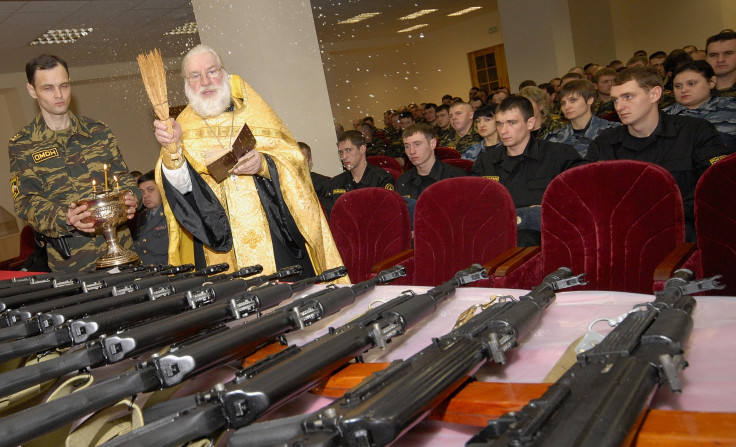Russian Gold-Backed Cryptocurrency Maybe Used For Weapons Sales

Russian lawmaker Vladimir Gutenev, in an interview with the country’s Tass news agency suggested Russia should use gold-backed cryptocurrencies for collecting money from its export of weapons. The lawmaker said Russia should "consider the possibility of conducting transactions in cryptocurrencies that are linked to the value of gold."
Such a move could allow Russia to sidestep attempts by the U.S., whose sanctions prevent or limit the trade of Russian arms and various other goods.
With regard to conducting transactions in cryptocurrencies with specific countries, Gutenev mentioned: "And I’m sure that this will be a very interesting option for China, India, and other states as well."
Recently, a top Pentagon official warned India there were no guarantees for a special waiver from the U.S. sanctions if it bought new weapons platforms from Russia.
"It’s no secret that serious pressure is being put on Russia, and it will only get worse. It is intended to deal a blow to defense cooperation, including defense exports." Gutenev said. "We see that the Americans now speak about the possibility of sanctions against the countries that purchase Russian weaponry…"
Gutenev also said his country should take radical measures to prevent the pressure being put on them by current U.S. foreign policy.
"I believe that now Russia has to draw its own red lines. The time has come to ponder on variants of an asymmetric response to the U.S., which are now being suggested by experts and are intended not only to offset their sanctions but also to do some retaliatory damage," Gutenev said.
In the interview, the lawmaker also mentioned stationing of Russian tactical nuclear weapons in countries like Syria, and ending certain treaties with the U.S., and mentioned the treaty on non-proliferation of nuclear technologies as an example of the kind of agreement experts think Russia should end.
The recent sanctions would terminate some financial assistance and arms sales to Russia from the U.S., as well as deny the country credit and prohibit it from exporting security-sensitive goods and technology. This sanction was a result of series of events following the alleged involvement of Russia in the poisoning of former spy Sergei Skripal and his daughter Yulia in Salisbury, near London.
The most well-known crypto token directly backed by gold was launched by the British Royal Mint earlier in 2018. Royal Mint Gold (RMG), the blockchain crypto token was first started in late 2016 and is backed by $1 billion in gold bars, nearly two tons of gold, stored in the Royal Mint’s vaults near Cardiff in Wales. A single RMG coin is worth its weight in one gram of gold.
In January, Australia’s biggest precious metals refinery, the Perth Mint, also announced the development of its own gold-backed cryptocurrency.
In Dubai, a startup called OneGram has built a cryptocurrency that is backed by gold. The company’s pitch is that each unit of value is backed by a physical gram of gold that is kept in a safe. This, therefore, limits volatility and speculation and has been deemed acceptable under Islamic principles by Dubai-based al-Maali Consulting.
© Copyright IBTimes 2025. All rights reserved.





















